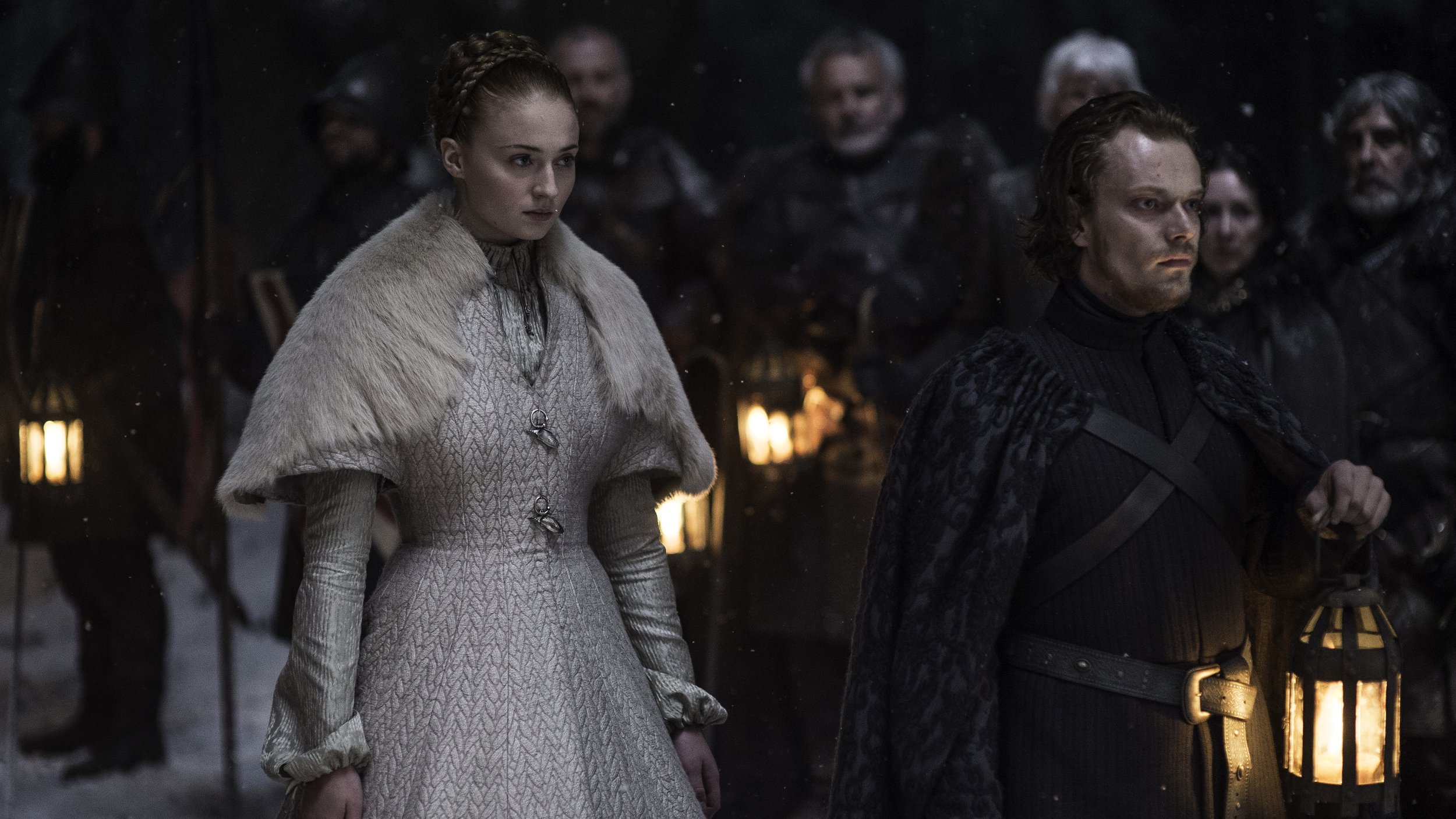The portrayal of sexual violence and assault in ‘Game of Thrones’ leaves much to be desired
Originally published November 9, 2021 by Maisy Clunies-Ross
This article contains discussions of sexual violence that may be triggering to some readers.
Sansa Stark (Sophie Turner) being forced to marry her abuser. Her character development and the portrayal of her sexual assault exemplifies many critics’ issues with how the show portrays sexual violence. (HBO)
Game of Thrones is famous for many things: complex characters, in-depth world building; and, surprising storylines, but it’s recently earned a reputation for having some of the worst representation of sexual assault in recent media.
For those who are unfamiliar, GOT takes place in a fantastical version of medieval Europe called Westeros. It centers on several noble families, their personal connections, and their fights to gain power and control.
Sexual assault has been prevalent in GOT since the very first episode “Winter Is Coming,” when the famous Daenerys,“Mother of Dragons,” is raped by her husband on their wedding night. The show goes on to contain 16 more instances of assault (and explicitly shown depictions of attempted assault), as well as many more uses of sexualized violence.
Although the series “A Song of Ice and Fire” by George R. R. Martin, includes sexual violence, many of the instances of assault in GOT were not present in the original book series. The dramatic increase in sexual assault could be written off as simply a poor adaptation of book to television, however sexual violence being added to plot lines that didn’t originally include it, such as Daenerys’s, indicate a more sinister reason for the change.
The frequent and violent nature of the scenes lead most viewers, both casual viewers like Ballard students and writers like the Atlantic’s Sophie Gilbertand, to agree: Game of Thrones uses assault for shock value.
This isn’t to say sexual assault should never be shown explicitly on screen. Sometimes, such as in the 2020 show “I May Destroy You,” the explicit depiction is necessary, because it demonstrates how sexual assault other than rape can still deeply affect survivors.
In Game of Thrones, on the other hand, most of the assault didn’t need to be shown on screen to get the message across and move the plot forward. Even the idea of sexual assault as a plot device is harmful, as it leads to thoughtless and insensitive portrayal, solely for the sake of moving the story forward.
Assault for plot purposes and character development is a rampant issue on Game of Thrones. Many assaults, albeit more essential to the story than the random sexual violence, are used for plot and character development.
For example, Sansa is subject to a great deal of abuse, including rape, on the show, yet over the course of the show, she becomes stronger, maturing and gaining independence. It’s positive representation in terms of female growth and empowerment, but sexual assault being the catalyst for Sansa’s growth sends the wrong message to viewers.
The “no pain no gain” and “what doesn’t kill you makes you stronger” tropes imply both that trauma is necessary for progress and success, and that survivors who are affected differently are in the wrong. Unlike much supposedly feminist media implies, most survivors don’t become self-sufficient, butt-kicking, #girlboss, superheroes after their trauma, and it’s dangerous to present that as a goal.
I understand that as a someone who isn’t a dedicated GOT fan, it’s easier for me to critique the show and it’s portrayal of sexual assault because I don’t have an emotional attachment to the characters and world of the show. There is a reason Game of Thrones is immensely popular; it’s an entertaining and well-crafted piece of media.
The merits of GOT are what makes the criticism so necessary. Fans deserve a show that isn’t unnecessarily triggering, but instead one that depicts assault realistically and thoughtfully.
Game of Thrones ended in 2019, so there’s nothing the creators can do to improve now. We can hope new shows learn from past criticisms and do our part as consumers to support media that represents sexual assault with effort, nuance and care.

























